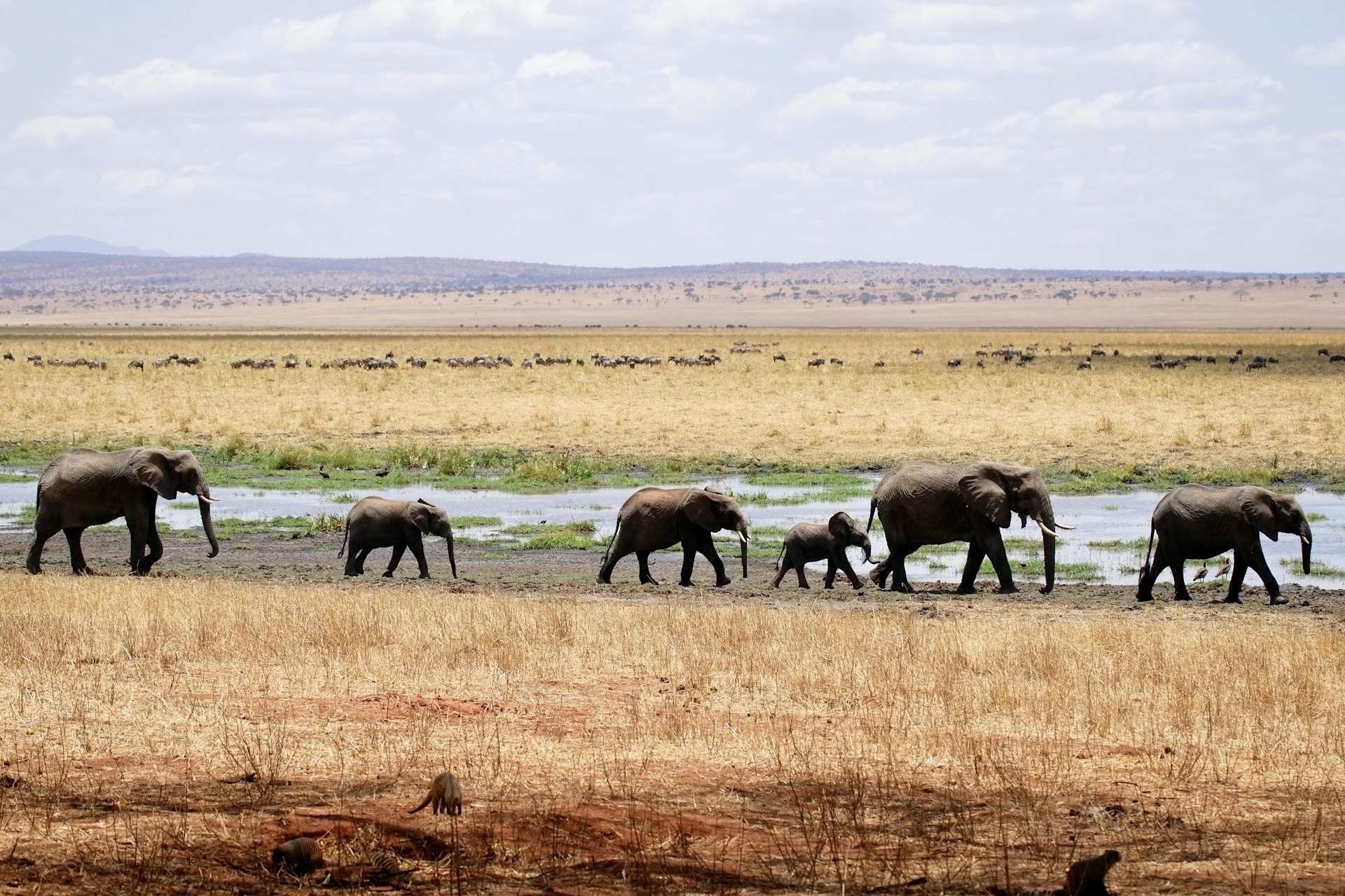The name-calling behaviour has only otherwise been observed in humans

Dogs bark, cats meow. Birds chirp and dolphins squeal. In between the vast array of sounds made by animals of all shapes and sizes, meaning is conveyed in ways that help these creatures form social bonds, mate, establish hierarchies and forage together. But of all the meanings biologists have uncovered after centuries of studying animal communication, a new one has just been revealed: name-calling.
In a new study published in Nature, an international team of scientists, led by Michael Pardo at Colorado State University, found that elephants appear to make specific sounds when calling to each other in the wild. The team carried out two experiments, one using a computer model and another in the field. In the first, they used machine learning to analyse the deep rumbles made by wild female African savannah elephants and their families in Kenya. They found patterns that suggested the calls were specific to particular individuals – in short, they call each other by name.
In the second experiment, the scientists played recordings of rumbles over loudspeakers to 17 wild elephants. The team filmed the elephants’ responses to either a call originally directed at them or a call directed at another individual. Whenever a rumble was the correct name, the scientists found that the observed elephant responded enthusiastically, lifting its head, flapping its ears and rumbling back as it walked towards the loudspeaker. In cases where the sound played by the scientists didn’t match the elephant’s name, the animal didn’t seem to respond as proactively.
Elephants have complex social interactions and are often separated from their close social companions. These rumbles are important for them to communicate over long distances, ensuring that they stay connected even when they are out of sight. But appearing to call each other by name is an incredibly unique phenomenon, only found elsewhere in humans. This has intrigued researchers – how is it that elephants and humans have a seemingly similar way of calling each other, when we evolved from very different ancestors?
This article is from New Humanist’s autumn 2024 issue. Subscribe now.

